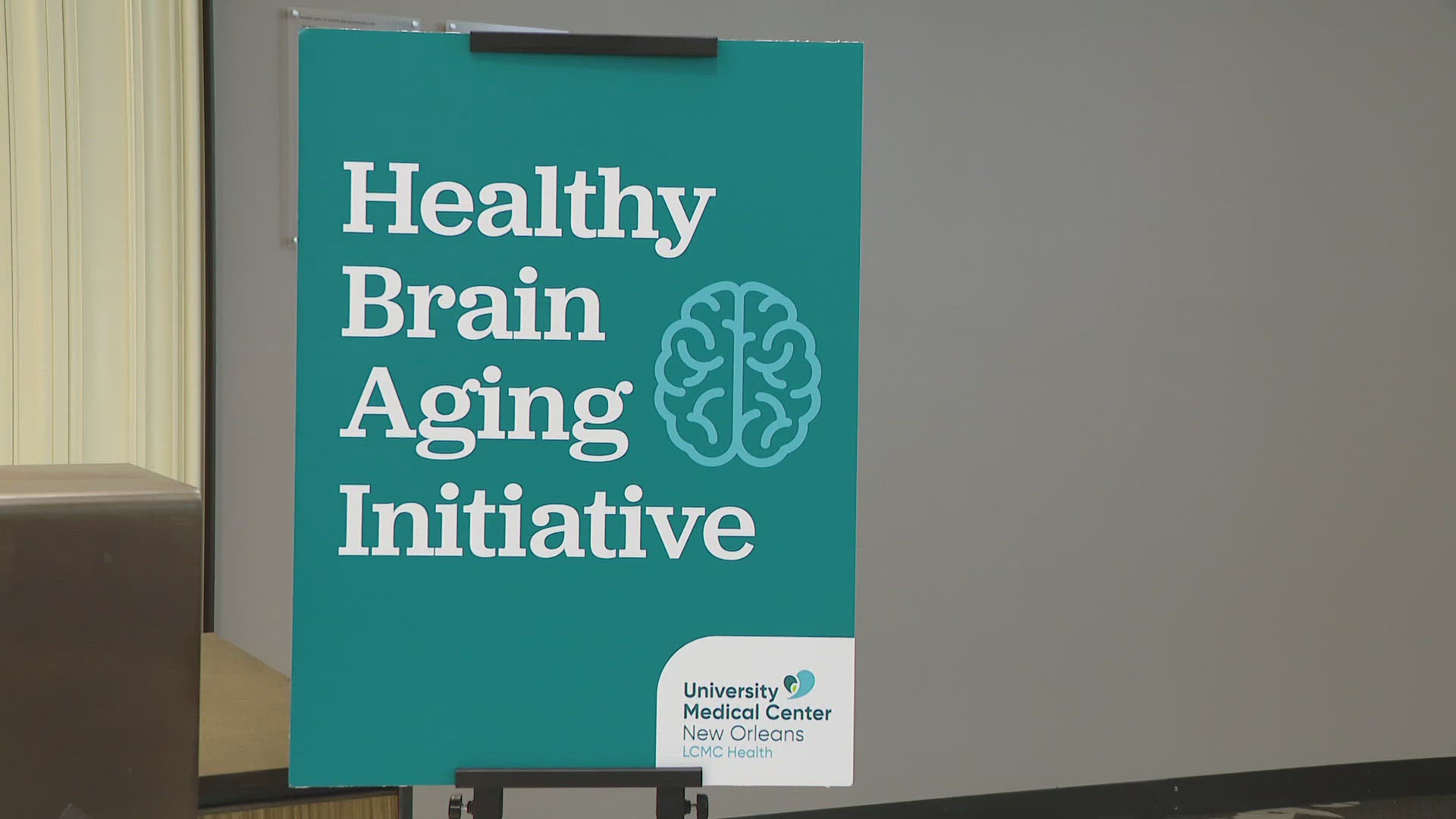NEW ORLEANS — Someone in the world develops dementia every three seconds.
By the end of this decade, it is estimated that 78 million people will live with this life-changing illness.
As told through the eyes of one local family, a new treatment center is helping them.
Adrian Rodriguez remembers four years ago when his dad, Manny asked to borrow his lawn mower.
“So, then I take him outside and there's a brand-new lawn mower sitting there, and I was like, ‘Dad, you bought a brand-new lawn mower like two weeks ago.’ And he's like, ‘I did?’” Adrian Rodriguez of
Destrehan remembers telling his father Manny.
Today the family knows that Manny, just like his mother and grandfather before him, is living with Alzheimer's disease.
“And they do a test it's a memory test and I failed it terribly. They kind of give you like five words, and you repeat what they are, and I failed it, and I knew this wasn't good,” Manny Rodriguez, 72 of Destrehan said with a laugh.
The Rodriguez family considers themselves fortunate to have all of Manny's treatments in one new place.
At the Healthy Brain Aging Initiative at UMC, you not only have access to treatment, but also to clinical trials, screenings, prevention, and genetic testing.
“The mission of the clinic is to evaluate people that have concerns about memory, or cognitive changes, regardless of what the cause of that could be, a one-stop shop where you can come get your evaluations, get your lab work, your imaging, and your treatment,” explained Dr. Michele Longo, Associate Professor at the Tulane Center for Clinical Neurosciences.
Physicians, who are specialists from Tulane, LSU Health and LCMC, can also help the families navigate the future needs of their loved ones, and if they want to know their genetic risk.
“Many of us, especially if we have a family history, we're worried about it already, and so clarifying are we truly at risk, how high is our risk, can be very important,” said the Chairman of Neurology at Tulane University School of Medicine, Dr. Demetrius Maraganore.
That's because the doctors can counsel you on the many health markers, so you can make lifestyle modifications now to lower your risk of brain impairment.
LIFESTYLE FACTORS THAT INCREASE DEMENTIA RISK
- DIABETES
- OBESITY
- NO EXERCISE
- SMOKING, EXCESSIVE ALCOHOL
- HEARING OR VISION LOSS
- DEPRESSION
- HIGH CHOLESTEROL, OR BLOOD PRESSURE
- BRAIN INJURY
- AIR POLLUTION
- SOCIAL ISOLATION
- NOT COMPLETING HIGH SCHOOL
Adrian wanted to know his genetic risk.
“In my case, the genetic testing did not find the markers, but this isn't just about genes, it's about choice,” Adrain Rodriguez said about knowing he can modify his lifestyle.
Manny is being treated with one of the newer IV medications, Leqembi that helps early-stage patients.
“People who get treated with either of these treatments have about a 30 percent improvement as compared to people who are not treated with these medications,” said Dr. Maraganore.
Having the latest treatments is important for the family of Manny, a former oil company mechanical engineer.
“I will say this he's the smartest person I know and for me, that's very hard. That's very hard,” Adrian said about watching his father’s cognitive skills decline.
But it’s much easier than traveling for treatment.
“And for the most part, I got my daddy at home. We don't have to try and go to the Mayo Clinic, which is beautiful and wonderful, and they're doing great work there, but we have the work here,” said Adrian.
For more on the clinic or to make an appointment, check out the following links:

